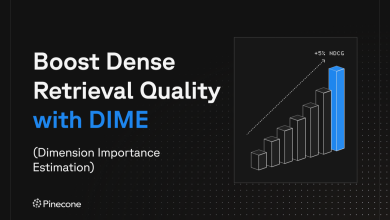
A pioneer at the intersection of digital transformation and human behaviour, Allister Frost is one of the UK’s most in-demand artificial intelligence speakers, known for helping organisations thrive in the face of rapid technological change. As Microsoft’s first-ever Head of Digital Marketing Strategy, Allister played a pivotal role in guiding one of the world’s biggest tech giants through its shift into the digital age.
Today, he is a globally respected voice among marketing speakers, leadership speakers, and keynote speakers, celebrated for his ability to translate complexity into actionable insight. In this exclusive interview, Allister shares how businesses can build future-ready teams, lead with authenticity, and embrace AI not as a threat, but as a powerful partner in innovation.
Whether you’re seeking motivation and inspiration speakers to energise your teams or thought leaders who understand the real-world impact of emerging technologies, Allister Frost delivers a compelling vision of what it means to lead—and adapt—in the age of AI.
Q: As AI and automation continue to accelerate across industries, what mindset and leadership approaches are essential to ensure the workforce remains adaptable, resilient, and future-ready?
Allister Frost: “I think AI and automation are wonderful things because they give you permission to have a lot more humility and honesty about your abilities. As leaders, you get used to having to wear this mask of invincibility—like you know everything that’s going on, you’re in control, and you’re the boss. You got to where you are because you’re smart. And the truth is, you don’t know what’s going on any more than I do.
“It’s all moving far too quickly for any single human to comprehend. So, it’s okay to have a little more humility and honesty. You don’t have all the answers. Everything is a work in progress—in this business and every business. We’re all newbies. We’re permanent newbies—that’s a good way to think about it. None of us really know what our job is going to be tomorrow. That is how quickly things can and may change.
“So, when you accept that artificial intelligence and all those other emerging technologies are going to change your job—they will change your job—that is inevitable. We just don’t know how. And it’s going to change your job more dramatically than you can probably imagine right now. That’s not a doomsday scenario or a reason to feel depressed—that’s just the reality of living in the 21st century. It’s inevitable.
“When you accept that, you can embrace new skills that will allow you to cope with that uncertainty together. And I have a third superpower—a human superpower—I love talking about. I call it “tell”, and it’s really about communication.
“People talking to people is something that computers cannot emulate. They try—and they try to copy it—but it’s not authentic, it’s not real. There is something extraordinary that happens when two or more human beings talk to each other, read the signals, emotionally connect. And that’s what we’ve got to stay good at alongside all the AI, because it can’t do that stuff for us—but we can.
“For individuals, that means you’ve got to have the courage to have an idea in the first place, and then to share that idea—your hopes, your dreams—to just throw it out there and say, “I think this could be better. I think we could change that.”
“And then your organisation, in turn, needs to be prepared to listen to that—to accept that vulnerable possibility that you’re just noodling over in your head—and help you make it better. Because, you know, not enough time is spent talking about what we’re seeing, what we’ve learned, what we’re imagining, and what possibilities exist.
“More energy in many organisations goes into moaning about the fact that stuff isn’t as good as it could be. We complain about the boss, or moan about the meeting being too long. But actually, if you said, “I think the meeting could be… we could do this differently. I had an idea. I learned this. I think this.
“Could we try that?”—and if the organisation the leaders create is one where those ideas don’t get shut down in flames but are actually encouraged—we try to improve them, to work together, and say, “Okay, you’re onto something there. Maybe the meeting could be shorter. How do we do that?”
“There’s a great line I learned in improvisational comedy—I do improvisational theatre as one of my little hobbies, and it’s great fun—but the first lesson you learn in improv is “yes, and”.
“So, if somebody says something to you like, “I’m a fishmonger,” don’t say, “No, you’re not. You’re a trainspotter.” That doesn’t make any sense—that’s unhelpful. But if you say, “Yes, and…”—and add something to what that person said—it’s amazing. Suddenly, the conversation is additive, it’s expansive, we’re listening, we’re supporting, we’re growing together. And that’s a simple change that we can introduce into businesses to allow communication to thrive.
“So, when someone says, “I’ve got this idea. Do you think we could do the Monday meeting online? Or on a Thursday? Or… never again?”—you can say, rather than saying, “No, because…” and giving them twelve reasons why the Monday meeting must stay on Monday, you can say, “Yes, and that might work. Let’s run that by this team,” or, “Yes, and let’s try thinking of some different ways together. Let’s work on it together.”
“I think that’s really important, because fundamentally, being future-ready is not a destination—it’s a state of mind. It’s a continuous process of preparing yourself and your organisation for all the inevitable changes and challenges of the future. That’s what we’re here for.
Q: During your time as Microsoft’s first Head of Digital Marketing Strategy, what key insights did you gain about organisational transformation—and which of those lessons remain most relevant to today’s fast-changing business environment?
Allister Frost: “I learned so many lessons at Microsoft—some good, some bad—and I think the most significant thing I realised is that sometimes you can be too close to your own business to recognise how behind the curve you are.
“In Microsoft’s case, we were really behind the curve for a large amount of the time I was there. A huge company, plentiful resources, talent everywhere—but disconnected from the realities of how Microsoft’s own products were being used by others to transform the world.
“I had this extraordinary job of helping Microsoft reinvent itself for the digital world that it had, in part, created. What I realised is that we didn’t have all the answers. We didn’t always know what to do. But when you start looking outside your world—when you go outside your organisation and see what others are doing—and bring those ideas back into the business, you inspire people, you generate excitement for possibilities that are there. You’re just not seeing them because you’re inside your own bubble.
“And it’s vitally important for every employee, I think, to have the ability to spend a little bit of time outside of the organisation—or just learning, reading, thinking, immersing themselves in other perspectives—because that’s the stuff we need to stay current and relevant.”




